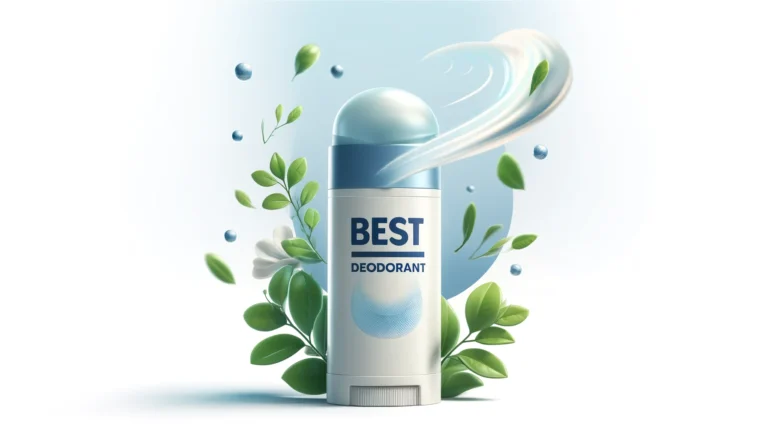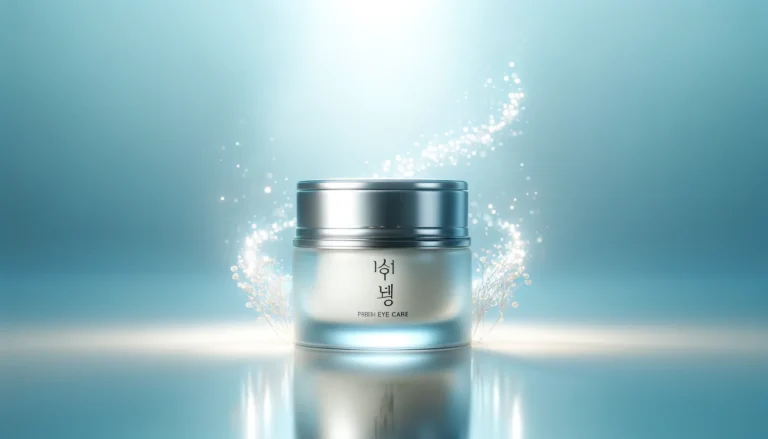Best Mulch for Flower Beds: A Comprehensive Guide
Mulch is a vital component of any healthy flower bed. It not only provides a neat and tidy appearance, but it also helps retain moisture, suppresses weed growth, and regulates soil temperature. With so many different types of mulch available, it can be challenging to determine which one is the best for your flower bed. In this article, we’ll explore the various types of mulch and identify the best mulch for flower beds.
When it comes to selecting the best mulch for flower beds, there are several factors to consider. The first thing to consider is the type of mulch. There are two primary types of mulch: organic and inorganic. Organic mulch is made from natural materials such as bark, wood chips, leaves, and straw. Inorganic mulch, on the other hand, is made from non-natural materials such as rubber, plastic, and stones.
Another factor to consider when selecting the best mulch for flower beds is the color. Mulch comes in a variety of colors, including brown, black, red, and natural. The color you choose can have a significant impact on the overall appearance of your flower bed.
Ultimately, the best mulch for flower beds will depend on your specific needs and preferences. In the next section, we’ll take a closer look at the different types of mulch and identify the best mulch for flower beds.
Best Mulch for Flower Beds
As avid gardeners, we know the importance of mulching flower beds. Mulch helps retain moisture, suppress weeds, and regulate soil temperature. However, with so many options available, it can be overwhelming to choose the right one for your garden. That’s why we’ve compiled a list of the best mulch for flower beds, based on our personal experience and research. Read on to find the perfect mulch for your garden.
1) Espoma Organic Raised Bed Mix
If you’re looking for an organic soil mix for your raised garden beds, Espoma’s Raised Bed Mix is a great option to consider. We’ve used this product in our own garden and have found it to be a reliable and effective way to enhance our soil and promote healthy plant growth.
PROS
CONS
We’ve found that Espoma’s Raised Bed Mix is a great choice for organic gardening enthusiasts who want to promote healthy plant growth without the use of synthetic plant foods or chemicals. The rich blend of natural and organic ingredients creates a nutrient-rich soil that is ideal for growing vegetables and herbs in raised garden beds.
One of the standout features of this product is the inclusion of myco-tone mycorrhizae, which helps to establish a beneficial relationship between plant roots and soil fungi. This can lead to improved nutrient uptake, water retention, and overall plant health.
We also appreciate the fact that this soil mix is ready to use right out of the bag, making it easy to fill new raised beds or enhance soil in existing ones. The bag is fairly large, so it should be enough to cover a decent-sized area.
Overall, we highly recommend Espoma’s Raised Bed Mix for anyone looking for an organic soil mix for their raised garden beds. While it may be a bit more expensive than some other options, we believe that the quality of the product justifies the price.
2) Miracle-Gro Organic All Natural Mulch, 1.5 cu. ft., 4 Pack
If you’re looking for an eco-friendly and safe mulch for your flower beds, Miracle-Gro Organic All Natural Mulch is a great option. It’s made with recycled green waste inputs and sustainable wood, and it’s free of harmful chemicals.
PROS
CONS
We used Miracle-Gro Organic All Natural Mulch in our flower beds and were impressed with its effectiveness in preventing weed growth. It also gave our beds a neat and tidy appearance. We appreciated the fact that it’s safe to use around our kids and pets, and we didn’t have to worry about any harmful chemicals.
However, the color of the mulch is not as vibrant as other options on the market, but it still looks natural. We also noticed that some pieces of the mulch were not shredded enough, which made it a bit harder to spread evenly. Additionally, it’s important to note that this mulch is not recommended for use around underdeveloped plants or directly against tree trunks.
Overall, if you’re looking for an organic and eco-friendly mulch that’s safe for your family and effective in preventing weed growth, Miracle-Gro Organic All Natural Mulch is a great choice.
3) Miracle-Gro Organic All Natural Mulch
If you’re looking for an organic mulch that’s locally made and safe to use around kids and pets, then Miracle-Gro Organic All Natural Mulch is a great option. It’s made with dye-free, sustainable wood and helps prevent weeds naturally.
PROS
CONS
We’ve used this mulch around our flower beds and vegetable garden, and it has done a great job of preventing weeds. The dye-free wood also gives it a natural look that blends well with the surroundings.
One thing to keep in mind is that the mulch may contain some sticks and stones, which can be a bit of a hassle to remove. Additionally, it tends to dry out quickly, so you’ll need to water your plants more frequently.
Overall, if you’re looking for an organic mulch that’s safe to use around kids and pets, Miracle-Gro Organic All Natural Mulch is a great choice. It’s locally made, helps prevent weeds naturally, and is made with sustainable wood. Just be prepared to remove some sticks and stones and water your plants more frequently.
4) Garden Elements Cocoa Bean Shell Mulch
We highly recommend the Garden Elements Cocoa Bean Shell Mulch for your flower beds. It is a natural and eco-friendly product that comes with a pleasing cocoa aroma.
PROS
CONS
This mulch is derived from the shell of the cocoa bean, making it a natural and eco-friendly option for your flower beds. The natural dark, fade-resistant color adds a touch of elegance to your garden, and the pleasing cocoa aroma is a bonus. It is also very lightweight and easy to spread, making it a breeze to use.
One of the benefits of using Garden Elements Cocoa Bean Shell Mulch is that it helps to smother weeds and retain moisture in your light soils. This is particularly useful in areas with hot and dry climates. However, it is important to note that this product is unsafe for dogs and is not for human consumption. It may also attract pests such as rodents and insects, so it is important to take necessary precautions.
Overall, we highly recommend the Garden Elements Cocoa Bean Shell Mulch for its natural and eco-friendly properties, ease of use, and ability to smother weeds and retain moisture in your light soils.
5) Avalution Orchid Potting Bark
If you’re looking for a versatile and all-natural orchid bark, the Avalution Orchid Potting Bark is a great option.
PROS
CONS
We recently used the Avalution Orchid Potting Bark in our flower beds and were impressed by its quality. The bark is neutral in pH and pre-sterilized, ensuring a clean and safe growing medium. We appreciated the versatility of the bark, which is suitable for various orchid types as well as other indoor plants like succulents and snake plants.
One of the standout features of this orchid bark is its excellent root stability. The premium pine bark ensures that the roots of our orchids were robust and healthy, promoting growth and vitality. We also noticed superior aeration and drainage, thanks to the optimal bark size. The bark kept our orchid roots airy, preventing waterlogging and ensuring thriving plants.
Another advantage of the Avalution Orchid Potting Bark is its water retention capabilities. The bark strikes the perfect balance, retaining essential moisture for hydration of our orchids, succulents, and other indoor plants. We found this especially useful during hot and dry weather when our plants needed more frequent watering.
While we appreciated the quality of the bark, we did find the bag size to be a bit small. At only 3 quarts, it may not be enough for larger flower beds. Additionally, some users have reported inconsistencies in the size of the bark pieces, which may affect its performance. Finally, the price may be higher compared to other orchid bark products on the market.
Overall, we would recommend the Avalution Orchid Potting Bark for those looking for a versatile and high-quality orchid bark. Its excellent root stability, superior aeration and drainage, and water retention capabilities make it a great choice for orchids, succulents, and other indoor plants.
6) Vivlly Compressed Coco Coir
We highly recommend the Vivlly Compressed Coco Coir for your flower bed needs due to its eco-friendly nature and effectiveness in promoting healthy root growth.
PROS
CONS
Our experience with the Vivlly Compressed Coco Coir has been positive overall. The coco coir is easy to use and provides excellent drainage and aeration for our plants. We appreciate the fact that it is peat moss-free and made from renewable materials, making it an eco-friendly choice for our flower beds. However, we did find that it took some effort to hydrate and break apart the compressed bricks, and the strong earthy smell may not be for everyone. Overall, we highly recommend this product for its effectiveness in promoting healthy root growth and its eco-friendly nature.
7) Compressed Coconut Husk Chips 9lbs – Expandable Substrate Block, Coco Coir Fiber Mulch, Reptile Bedding, Potting Soil Mix for Indoor & Outdoor Applications.
If you’re looking for a natural and organic mulch option for your flower beds, Nutroeno’s Compressed Coconut Husk Chips might be a good choice for you.
PROS
CONS
Overall, we found Nutroeno’s Compressed Coconut Husk Chips to be a high-quality option for natural mulch. The chips are expandable and can hold up to 10 times their weight in water, making them ideal for soilless plants like orchids and as landscaping mulch. Additionally, the chips can be used in combination with bark, charcoal, perlite, hydroton clay media, or other porous media to create your own special orchid mix.
In our experience, the coconut husk chips absorb water and stay moist for quite some time, so they need less watering than bark. This makes them a great choice for gardeners who are too busy to remember, or for people who travel often, or for someone who wants more free time enjoying the garden instead of caring for plants.
If you’re looking for a sustainable and eco-friendly option for your flower beds, we recommend giving Nutroeno’s Compressed Coconut Husk Chips a try.
Buying Guide
When it comes to choosing the best mulch for your flower beds, there are a few factors you should consider to ensure you get the most out of your investment. In this buying guide, we’ll go over some of the key features to look for when choosing a mulch product.
Material
The first thing to consider is the material of the mulch. There are several options available, including wood chips, straw, leaves, grass clippings, and more. Each material has its own advantages and disadvantages, so it’s important to choose one that fits your specific needs.
For example, wood chips are a popular choice because they are long-lasting and provide good insulation for plant roots. However, they can be expensive and may attract pests. On the other hand, straw is more affordable and can help retain moisture in the soil, but it may also contain weed seeds.
Color
Another factor to consider is the color of the mulch. While this may seem like a minor detail, it can actually have a big impact on the overall look of your flower beds. Some popular colors include brown, black, and red.
Brown mulch is a natural-looking option that blends well with most landscapes, while black mulch can provide a striking contrast. Red mulch is often used to create a bold statement, but it may not be the best choice for all types of flowers.
Texture
The texture of the mulch is also important to consider. Some mulch products are fine and compact, while others are chunky and loose. The texture can affect how well the mulch insulates the soil and how easy it is to spread.
For example, fine mulch may not provide as much insulation as chunky mulch, but it can be easier to spread evenly. On the other hand, chunky mulch may be more difficult to spread, but it can provide better protection against erosion.
By considering these factors, you can choose the best mulch for your flower beds and ensure that your plants thrive.
Frequently Asked Questions
What are the benefits of using mulch in flower beds?
Mulching flower beds offers numerous benefits. It helps to suppress weed growth, conserve soil moisture, regulate soil temperature, and prevent soil erosion. Additionally, it can enrich the soil by adding nutrients as it breaks down over time.
Which type of mulch is most effective for weed control?
Mulches made from organic materials, such as wood chips, bark, or straw, are effective for weed control. These materials form a barrier that prevents sunlight from reaching weed seeds, which inhibits their germination and growth.
How does mulch impact soil health and plant growth in landscaping?
Mulch can improve soil health and plant growth by providing a protective layer that helps retain moisture and regulate soil temperature. As mulch breaks down, it also adds organic matter to the soil, which can improve soil structure and fertility.
What are the considerations for choosing mulch for perennial plants?
When choosing mulch for perennial plants, consider the type of plant, the climate, and the soil conditions. Perennial plants may benefit from mulch that retains moisture, such as wood chips or shredded leaves. It’s also important to choose a mulch that won’t compact and suffocate the plant’s roots.
How often should mulch be replaced in garden beds?
Mulch should be replenished annually to maintain its benefits. However, the frequency of replacement may depend on the type of mulch and the climate. For example, mulch made from bark or wood chips may last longer than mulch made from straw.
Are there any mulches that should be avoided in certain types of gardens?
Some mulches may not be suitable for certain types of gardens. For example, mulches made from cocoa bean shells may be toxic to pets if ingested and should be avoided in gardens where pets may roam. Additionally, some mulches may contain weed seeds or pathogens that can harm plants, so it’s important to choose a reputable source for mulch.














